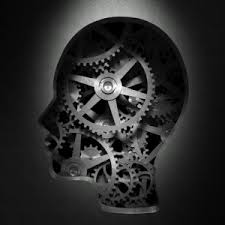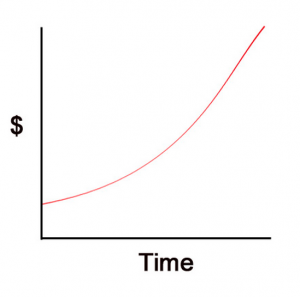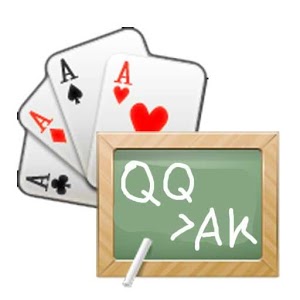Back in the late 90’s, before he became sidetracked with writing songs about Michael Jackson, George Bush and vomit, Eminem released a catchy song entitled ‘Guilty Conscience’. It was a song about the two voices that talk to you, one ‘bad voice’ (played by Eminem) representing temptation to commit crime or do what is wrong and one ‘good voice’ (played by Dr Dre) representing logic, reason and morality. It told a story of various scenarios where you might hear the two voices, sometimes one winning and sometimes the other.
Leaving hip-hop to one side for the moment, I have always been fascinated by the subject of tilt. A number of poker writers have attempted to determine why players tilt and they usually conclude that players are most likely to tilt when they encounter stressful situations such as losing a big pot, taking a bad beat or going on a downswing. However, not only is this quite a narrow view of tilt, but also it doesn’t really answer this question. Sure, a bad beat (for example) might be a trigger for tilt, but why would losing a hand when you were a strong favourite cause you to play badly on subsequent hands? Why would a generally good poker player play in a way that they know is wrong, that they know will lose them money in the long run? Is it a conscious decision, a subconscious one or do they simply ‘forget’ how to play well for a period?
This is a question that I have been thinking about a lot, and I think to find the answer we need to go back a long way. Back to when we first started playing poker, when what we lacked in knowledge and experience we more than made up for in enthusiasm. Think back to when you first started playing poker and try to remember how you played. While it will vary from individual to individual, it is a fair bet that your game had the following characteristics:
Too loose – You played too many hands pre-flop and continued with weak holdings for too long after the flop.
Too passive – You checked and called too often as opposed to betting and raising with a strong hand.
Insufficient thought – You would play without thinking hard enough about what your opponents might hold or analysing how individual opponents play.
The reason we played poorly is generally that we didn’t know any better. We didn’t have the understanding of the game to realise the benefits of a tight-aggressive strategy, nor did we realise the importance of good analysis of your opponents. But the reason we played specifically like this, as opposed to the numerous other styles of ‘bad poker’ that we could have adopted, is that this is how we would like to play instinctively.
We would like to play lots of hands to be more involved in the action and play to the river in the hope of winning.
We are naturally risk averse and don’t want to be paying multiple bets when the outcome is uncertain. We want to check/call down and see if we have won.
We would like an easy formula for success and not have to think too hard when playing.
The problem with the human brain is that it is extremely creative and convincing when creating a justification for something you want to do. We had a style of poker that we wanted to play and we wanted to win money. Rather than seeing the conflict between the two, we just allowed our brain to draw a bridge between them, to create a faux justification for our bad play. We would convince ourselves that our loose, passive, formulaic game was the correct way to play poker and ignore evidence to the contrary.
Many players never leave this stage. They continue to lose money playing poker because either they don’t realise they are playing badly, or they realise it at some level but don’t want to make the effort to improve. This is great because it is the reason that there are so many weak players around for the better players to win money from. On the other hand, some players have the intelligence to realise that they are playing badly and move on. They will read books, articles and forums and do everything they can to learn how to play poker well, and this means moving on from the way they actually want to play poker to embrace how they need to play poker in order to win.
So what has this got to do with tilt? Almost a year ago I wrote a two-part article on the different types of tilt, and the three most common forms were:
Loose Tilt – Playing too many hands and chasing after the flop.
Passive Tilt – Playing too weakly and not raising enough.
Formulaic Tilt – Playing on autopilot, without paying due attention to the exact game state.
In other words the way you play when you go on tilt is, more often than not, the way that you played poker when you first started playing the game. Somehow going on tilt represents a regression of your game to the way you used to play, before you realised the importance of tight, aggressive and thoughtful play. Why would a player who knows how to play good poker somehow go on tilt and seemingly forget much of what they have learned, returning to a game more like they played when they first started playing?
Well I’m going to let you into a secret. If you are one of these players who has studied the game and has transcended beyond ‘beginner poker’ (and I suspect the majority of people reading this article are), then that doesn’t mean you have changed the way you want to play. You would still like to play loosely, passively and without a lot of thought if you could, it’s just you have the intelligence to realise that you will lose money in the long term by doing so. The only thing that separates you from the pool of fish you prey on is that your desire to make money has overcome your desire to play poker in the fun way you would like to.
But the temptation is still there to play that way. You secretly want to play J9s in early position. You secretly hate throwing away that nice looking AJ to an early position raise. You secretly want to just go into check-call mode when you are raised on the flop rather than extract maximum value. You secretly dislike painstakingly making notes on every opponent. It’s like there are two voices in your head, one bad and one good just like in the Eminem song. There is the voice telling you to play the way you would like to play, and there is the voice of reason and experience telling you to play the way you know you should play. Generally speaking the latter voice is louder and so most of the time you play good poker. But sometimes something happens to make the bad voice louder or the good voice quieter.
You take a bad beat in a big pot. The bad voice urges you to play more hands to try and win that money back.
You are beaten by a string of sets and flushes. The bad voice telling you to just call down with top pair, top kicker becomes louder, while the good voice telling you to raise it for value and to protect it becomes quieter and less certain.
You are tired and bored. The bad voice telling you to just play on autopilot suddenly sounds a lot more convincing.
And it is this that causes tilt. Whenever the temptation to play the way you want to play becomes unusually high, or you lose faith in the good poker that you usually play, then you are going to be prone to going on tilt. In fact, the word tilt is itself misleading. Tilt isn’t a strange force that changes your game for the worse, it is the absence of the discipline to play the correct way.
The reason that some players are very prone to tilt is that their bad voice is louder to start with or the good voice quieter. This makes the ‘distance’ that they need to travel to go on tilt considerably less and the result is that situations that most players would just shrug off can push them over the edge. At the other end of the scale are extremely disciplined and experienced players who have managed to suppress their bad voice to a virtual whisper. A player like this will need a very abnormal or stressful set of circumstances to go on tilt badly.
But no matter how good a player you are, the bad voice is always there, waiting for its moment to be heard. It can be suppressed but never eliminated. When you are at the poker table, especially when things are going badly, be constantly alert to the possibility that you might go on tilt. You never know when the temptation might be there to listen to Eminem rather than Dr Dre.
Ian Taylor “Piemaster”
Submit your review | |









